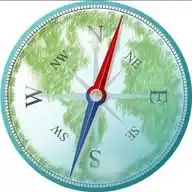
Climate Newsroom
849 subscribers
About Climate Newsroom
Climate Newsroom is a youth led creative media agency specialising in digital media powerful content & creative storytelling within the climate movement and Green Journalism in #zimbabwe & the world. Climate Newsroom is a platform also to teach Africa’s future generations to value and protect their planet through creative storytelling, community engagements, media campaigns, and spotlighting.
Similar Channels
Swipe to see more
Posts

Call for Applications: Accountability Fellows 2025 Accountability Lab #Zimbabwe is inviting applications for its 2025 Accountability Fellowship. This is a paid six-month professional development opportunity for recent graduates and early-career professionals (with less than three years’ experience) who are passionate about: Natural Resource Governance Public Finance Management Environment and Climate Change Local Governance Digital Governance Eligibility: Open to Zimbabweans. Young women are especially encouraged to apply. 📅 Deadline: 27 June 2025 📧 Submit a resume and cover letter to: [email protected] #makegovernancework4thepeople
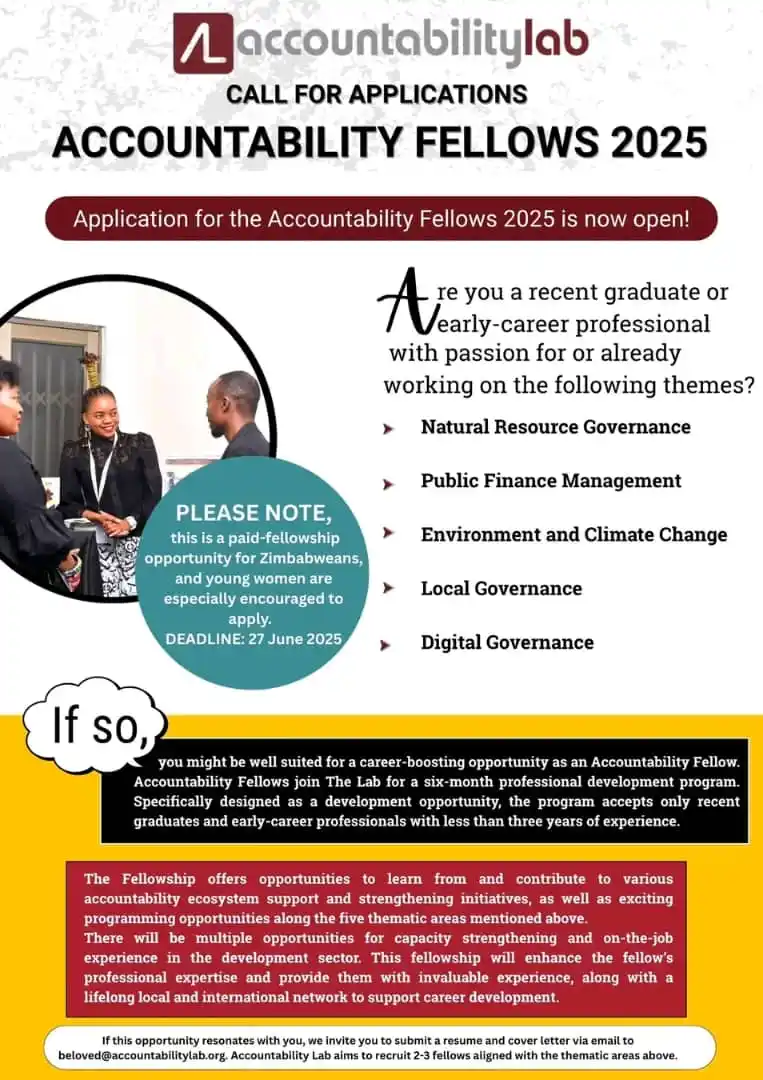

https://climatenewsroom.co.zw/poaching-continues-to-haunt-zimbabwes-wild-landscapes-as-silent-crude-snares-claim-victims-indiscriminately/

Africa’s sacred messenger under siege as pangolin remains world’s most trafficked mammal The pangolin moves slowly across the dry earth, covered in scales that glint faintly in the fading light, and for a moment, it seems like something out of a dream, yet deeply familiar to those who have grown up in rural areas listening to stories whispered by elders around evening fires. In Zimbabwe, seeing a pangolin is not just rare, it is sacred, and those lucky enough to witness one believe it carries a message from the ancestors, a quiet signal that something good is coming. The number of steps it takes before it disappears into the bush is said to reveal how many good years lie ahead, and to harm such a creature is not only a crime under the law, it is also seen as a deep violation of the natural order and a break with traditions that have guided communities for generations. Pangolins, nocturnal creatures famed for their full armour of scales, are the most trafficked mammal in the world according to the World Wildlife Fund, and all eight species are on the red list of threatened species and at risk of extinction Despite a global ban on the trade of pangolins introduced in 2017 under the Convention on International Trade in Endangered Species (CITES), the animal remains the world’s most trafficked mammal. Between 2000 and 2019, the equivalent of more than 895,000 pangolins were trafficked globally. Tikki Hywood Foundation Chief Executive Officer Lisa Hywood describes this as a tragic and often overlooked reality, largely because global conservation efforts and public attention have historically focused on more prominent and charismatic species such as elephants and lions. “The pangolin unfortunately is still the world’s most trafficked mammal and that is a very sad title for any species to have. I think the world up until recently has focused on your more charismatic animals like the elephants, the lions,” she said. Zimbabwe’s government has taken a proactive and collaborative approach to addressing issues related to pangolin conservation within the country. “Zimbabwe has had a very proactive government when it comes to pangolins, and we have collectively identified the problems and worked together to resolve them within our own country.” “In fact, out of the 35 range states in Africa that have Pangolins, Zimbabwe is the first range state to actually develop a Pangolin management conservation plan which was developed and instituted last year in Zimbabwe.” Under the Zimbabwean law, any person convicted of the unlawful killing, possession of, or trading in any Specially Protected Species is liable, on first conviction, to imprisonment for a period of not less than nine years, and for a second or subsequent conviction to imprisonment for a period of not less than eleven years. “In Zimbabwe, there is a mandatory sentence of nine years imprisonment for anyone found in possession of any part of a pangolin. This ranges from a live pangolin to a single scale. The sentence is the same whether you have ten pangolins or just one scale. It is a mandatory nine years in jail,” she said. Hywood called for greater commitment and collaboration from governments across Africa for pangolin conservation to be effective. She emphasized the importance of learning from countries that are already taking proactive steps and understanding the different threats to pangolins in various regions, which is crucial for developing effective protection strategies. “I think going forward, what we need to do is understand more about the species and identify the threats. From northern Africa to southern Africa, the threats differ slightly. In western and central Africa, I believe the biggest threat is the bushmeat market. As you move down to southern Africa, where we are based, the threats are different, mainly trafficking and trade. We need to be mindful of these threats in order to overcome them.” “What needs to happen across the rest of Africa is greater buy-in from governments in those countries, for them to better understand the plight of pangolins within their own borders, and then, collectively, to identify which nations have been proactive and work together as one continent.” Demand for African pangolins in countries such as China and Vietnam has been growing as the number of Asian pangolins has dwindled over the years, to the point where two of the four Asian species are now on the critically endangered list. The other two are endangered and all four African species of pangolin were classed as vulnerable by the International Union for Conservation of Nature when all commercial trade in pangolins, also known as scaly anteaters, was banned in 2016. Data from International Organization for Animal Welfare (IFAW), this illegal trade does not just harm individual pangolins, it wreaks havoc on entire ecosystems, as pangolins act as gardeners when they forage for meals of ants and termites. They burrow into the ground, aerating the soil and cycling nutrients, while keeping insect populations in control, they are vital protectors of forests and other plant life. Fortunately, there’s a new light of hope for pangolins shining against this dark, dangerous backdrop, this week, the U.S. Fish and Wildlife Service (USFWS) has taken one step closer to recognizing all pangolin species under the Endangered Species Act (ESA). This decision could be a huge win for wildlife, it will reinforce the international commercial trade ban for US imports and prohibit interstate sale of live pangolins and their body parts. This decision would also help heighten global awareness about pangolins’ plight and how important they are to our planet. The protection of one of the World’s most illegally trafficked mammals is a message that needs to be heard and understood by everyone if we are to give this animal a fighting chance. The Tikki Hywood Foundation through the aid of its partners and various conservation groups has lobbied with the assistance from Government conservation mandated entities like Zimbabwe Parks and Wildlife Management Authority (Zimparks) and the Ministry of Environment to have the Pangolin designated as a specially protected species.
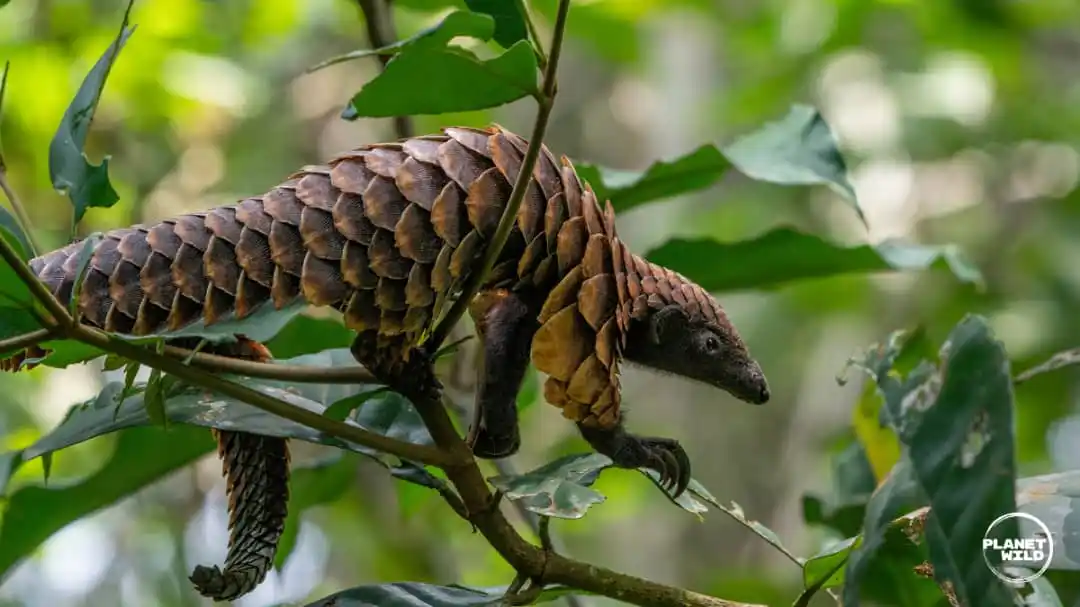

https://climatenewsroom.co.zw/africas-sacred-messenger-under-siege-as-pangolin-remains-worlds-most-trafficked-mammal/

https://climatenewsroom.co.zw/sweden-runs-out-of-garbage-forced-to-import-from-other-countries/

Bringing missing communities voices into the conservation conversation The involvement of local communities in local and international conservation talks is essential, as decisions made at global forums often have a direct impact on the lives of people living near protected areas. This emerged during a high-level stakeholder engagement convened in Harare recently, ahead of the 20th Conference of the Parties (CoP20) to the Convention on International Trade in Endangered Species of Wild Fauna and Flora (CITES), scheduled for November in Samarkand, Uzbekistan. Zimbabwe Parks and Wildlife Management Authority (ZimParks) Director-General, Prof Edson Gandiwa, urged stakeholders to acknowledge the absence of local communities who live alongside wildlife but are often excluded from high-level conservation forums. He gave a powerful analogy of the “empty chair” to highlight the absence of local communities in key conservation discussions. These are the people who live alongside wildlife and are most affected by policy decisions, yet their voices are often missing from the room. “But more importantly, let us also remember the ’empty chair’. The empty chair represents those communities, those people who live with or alongside wildlife but cannot be here. “As we present our cases and share our ideas, let us always remember that what we do here serves as a pivot for many who are not present,” he said. In a strong call for inclusivity and leaving no one behind, Prof Gandiwa highlighted the role of youth, women, and local communities in environmental protection efforts. Broadening their participation is not only key to making conservation effective and rooted in local stewardship, but also supports broader sustainable development goals. “We also want to acknowledge the critical role of inclusivity in our conservation efforts. The engagement of youth, women, and local communities is essential, not only to broaden participation but also to ensure that conservation remains a cornerstone of local stewardship and sustainable development.” Community involvement in wildlife dialogues is often limited, despite being crucial for successful conservation efforts. While some initiatives exist to integrate local communities into wildlife management, challenges remain in ensuring effective and inclusive participation. Midlands State University School of Social Work Executive Director, Dr Noel Muridzo (MSU) says Zimbabwe and like-minded countries are right to call for the inclusion of communities in policy discussions, as those most affected should have a voice. He believes inclusion fosters a sense of ownership and encourages shifts in harmful belief systems that have contributed to resource depletion, ultimately promoting stronger environmental stewardship. “Zimbabwe and other like minded countries are correct to advocate for the inclusion of communities in the discussions. Communities are affected by decisions made. So it is only logical to include them. Again, for sustainability and efficacy of decisions and agreements there needs to be buy-in and ownership of processes.” “Inclusions will translate to ownership, change in belief systems some of which have been the reasons behind depletion of the finite resources. Also, inclusion results in greater stewardship,” he said. ZimParks spokesperson, Tinashe Farawo said communities living alongside wildlife are often the first line of defence in conservation, yet they remain underappreciated. “Communities are the first line of defence in wildlife areas. We have armies who provide a security service to countries, and they are paid to do so. So why cannot communities derive benefits or incentives as they protect and defend their countries’ wildlife stock? He added that local voices must be heard at international forums, such as the upcoming CITES COP20, where decisions can directly affect their livelihoods. “Community voices need to be heard at international forums as decisions that are made at these forums have a direct impact on their livelihoods. As we prepare for this CITES COP20 that is on the agenda to have indigenous people and communities involved at international forums.’ There is also a growing call to prioritise investment in regions where wildlife populations are stable or increasing, as these strongholds are vital for the long-term survival of species across the continent. “Prioritising investment in the protection of those population strongholds that are stable or increasing is vital because of their importance for the long-term viability and survival of the species across the continent,” he said. Zimbabwe is working with rural district councils through the Communal Areas Management Programme for Indigenous Resources (CAMPFIRE), which enables local communities to generate income from safari hunting, photographic tourism and natural resource use. Initially, about 60% of international hunting revenues were allocated to communities, but this has recently increased to 100%, allowing them greater control over the funds. The revenue is invested in communal infrastructure such as schools, clinics and boreholes, with some funds distributed directly to households, often through budgets approved by the community. “We have functional CAMPFIRE programmes in areas such as Hwange RDC, Tsholotsho, Chipinge, Bikita, and many others. The idea is to ensure that these communities benefit, or at the very least, view the animals as an economic opportunity. If someone sees an elephant, they must see a job, they must see development. These are some of the initiatives we are working on with the communities,” Farawo said. Several African countries have achieved notable success by involving communities in wildlife management. In Namibia, the Communal Conservancy Programme has empowered local communities to manage wildlife and benefit from tourism and sustainable hunting, leading to wildlife recovery and improved livelihoods. Kenya’s community conservancies, particularly in the north, have helped reduce poaching, increase wildlife populations, and create jobs through tourism. Botswana’s CBNRM programme has supported community trusts that manage resources and benefit from eco-tourism and regulated hunting, although it faced setbacks during a national hunting ban. Meanwhile, Tanzania’s Wildlife Management Areas (WMAs) allow villages to manage wildlife and earn revenue from tourism, contributing to conservation and local development. These models demonstrate that when communities are given rights and incentives, they can become effective stewards of wildlife.
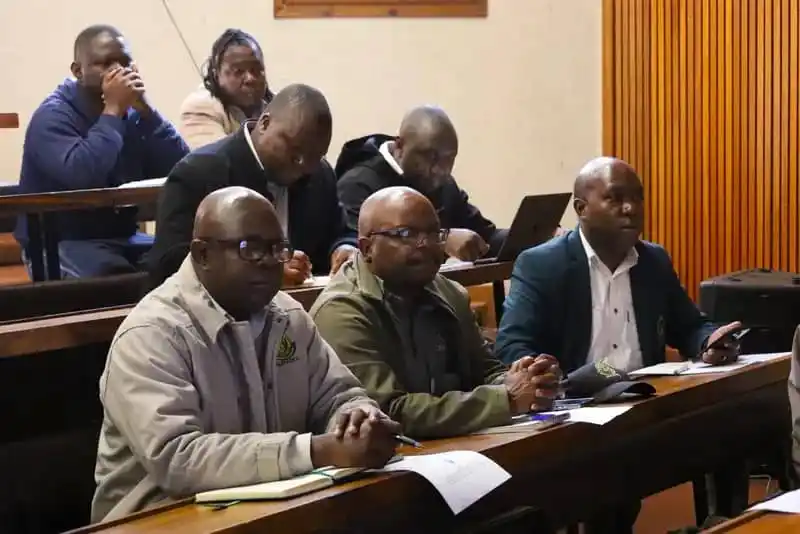

https://climatenewsroom.co.zw/climate-change-is-intensifying-a-new-generation-is-increasingly-mobilising-to-address-its-long-term-impacts-with-growing-attention-on-the-role-of-wetlands-in-climate-mitigation/

Three-day climate finance training under the theme “INVEST IN YOUTHS, SAVE OUR FUTURE” has concluded in Bulawayo, equipping young people with the skills to develop and fund climate-focused projects. The workshop, organised by the Ministry of Environment, Climate and Wildlife in collaboration with UNDP Zimbabwe and supported by the Belgian government, brought together participants from across the country. Participants were introduced to key concepts in climate finance, including proposal writing, impact measurement, and funding structures. On the final day, youth groups presented project proposals in sectors such as renewable energy, sustainable agriculture, and waste management, as part of a wider effort to align youth efforts with the country's climate policies, including its updated NDCs and Low Emissions Strategy.The ideas were bold but grounded, shaped by practical tools provided throughout the training. Three days of training cannot undo years of limited access to funding or fix the power imbalance in climate finance. The enthusiasm in the room was clear, but so were the frustrations. Many young people spoke honestly about the challenges they face. In Zimbabwe, as in many parts of the global South, there is a generation of climate-conscious youth ready to lead. But they often lack access to finance, mentorship, and the trust that is usually given to older or international organisations. #ClimateFinance #YouthClimateAction #ZimbabweYouth #GlobalSouthVoices #ClimateJustice #GreenEntrepreneurship #SustainableFuture #YouthLeadership #ClimateSolutions #ClimateEmpowerment
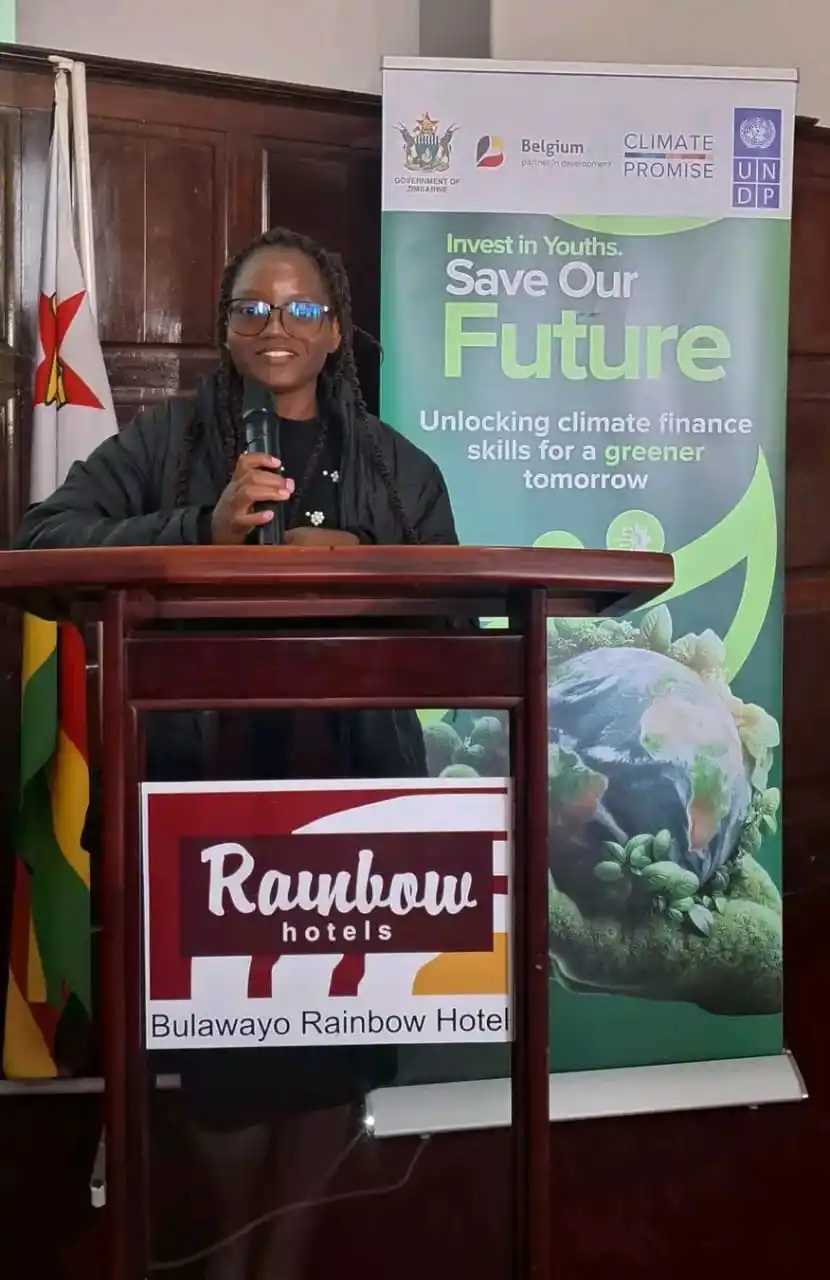

Tackling conservation challenges across borders in Southern Africa: Conservation is no longer a local issue. It’s a global responsibility and the time to act is now. This week, at the SADC Transfrontier Conservation Areas (TFCA) International Conference and Summit in Harare, Prof. Edson Gandiwa, Director General of Zimbabwe Parks and Wildlife Management Authority (ZimParks), outline some of the most pressing challenges facing our region’s shared natural heritage. From climate change to human-wildlife conflict and funding constraints, the threats to Transfrontier Parks are complex and growing. “Changing climate then brings in a lot of these other issues to do with droughts, hurricanes which is more now.” "Southern Africa is the largest population, a concentration of elephants. So what does that mean? It means that the space is competing, we are competing humans and animals for space which is a negative impact. One of the most powerful messages was around transboundary collaboration. Zimbabwe alone is part of 60 transfrontier conservation areas, which allow for species migration, joint anti-poaching initiatives, and shared ecosystem management. But this vision cannot be realized without international financial support, capacity building, and strong partnerships. “As much as our governments are doing so much, there are still gaps that we see in terms of financing. Hence the international partners come and play and close that gap to some extent which is quite commendable,” Prof. Gandiwa said. #Conservation #Sustainability #ClimateChange #Wildlife #Funding #TFCA #Zimbabwe #SADC #Biodiversity #Partnerships #Africa


SADC has called for intensified conservation efforts to drive regional integration, sustainability, and peace. At the Ministerial Meeting in Harare, leaders celebrated 25 years of the Transfrontier Conservation Areas (TFCAs) Programme—an initiative that has transformed how shared natural resources are managed across borders, creating jobs, strengthening food security, and enhancing livelihoods. Zimbabwe also reaffirmed its global conservation commitment by signing the Raptors MOU, aligning with the Convention on Migratory Species. This reinforces the country’s Vision 2030 goals of inclusive growth, innovation, and environmental stewardship. #SADC #TFCAs #Conservation #Biodiversity #Vision2030 #RegionalIntegration




